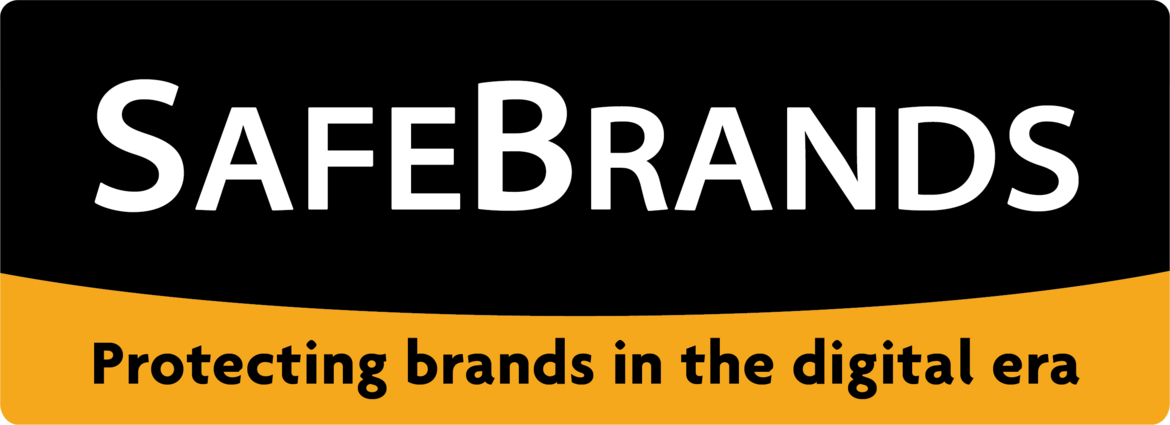How to Succeed Online when Launching or Renaming a Brand
In the digital economy, naming has strategic importance in terms of the economic potential of the brand and potential legal hurdles, Matthieu Aubert from SafeBrands explains.

© peterschreiber.media | istockphoto.com
Searching for a new brand name or looking to rename your current one? A quick search online will redirect you to tons of tutorials giving tips and naming pitfalls to avoid when undertaking this major step. The process could be tricky as many aspects need to be considered … and domain names are one of them. The Internet is now part of our lives and, in many countries, it has become a fundamental human right. Thus, it should be obvious that domain names must play an essential role in the decision process for a new brand name. Unfortunately, the importance of domain names is still underrated…
Naming basics – knowing the domain landscape around your chosen brand name
What will happen if I choose a name corresponding to a similar online business? How much will it cost me if I communicate on my brand before having secured the corresponding domains?
These questions might appear quite basic, but too many examples of global or partial oversights can still be seen.
Once a name has qualified as a potentially good one, what points must be considered before any final decision is made?
Trademarks have prior searches; domain names must also!
Trademarks have to be distinctive, domain names don’t.
Trademarks have “jurisdictions”, domain names don’t.
Trademarks have classifications, domain names don’t.
And the list goes on…
Searching for all the domain names which could contain or bear semblance to your brand worldwide is a must. There are more than 1000 extensions (top-level domains – TLDs – like .net, .org, etc.) nowadays, and an almost infinite variety of possibilities for registrations.
The domain-name approach, even if based on many aspects of the trademark approach (at least originally) is quite dissimilar in several major points. The reason is that domain names were perceived as trademark accessories for many years, which still leads to some difficulties in considering them as an important topic in their own right in many companies.
There are tools to perform audits but they vary greatly in terms of exhaustiveness, for instance, due to the technology that must be developed to support those searches under all extensions (TLDs).
Which TLD to choose in a virtual world without boundaries?
The research should be global as there are no virtual borders that cannot be crossed. Research should include both registered domain names and available ones, to obtain a clear overview of possibilities. Only the relevant TLDs should be selected and analyzed.
- Country code extensions: current ones and those corresponding to future implementation projects or markets. It is very important to anticipate expansion and not to leave potentially interesting domain names available in promising markets, just in case. This is not a cost-saving position; the strategy will be the answer to this problem.
- Generic extensions: aside from the main ones, it is interesting to select a few whose meanings correspond to the activities/products/geographical or target communities.
A domain name audit is a must, but will be useless without deep analysis
When this challenge is solved, the need to perform an analysis of the results - but, even more so, to come to the right conclusion -could be even more complex. Domain names are still too often considered to be a global product with a harmonized frame … which they are not!
Each country enacts its own regulations regarding topics that can impact domain names (if at all). One universal principle, however – and I would add, rightly so – is that a domain name cannot be protected if it is not used.
Thus, one of the required actions is to analyze registered domain names one by one to check how they are used, by whom, and whether they could thus represent existing rights.
What if identical or similar domain names are already registered and used by third parties? We shouldn’t forget that the registrant could be legitimate! Even if it is not a necessarily a 'no go' sign, the activities of each registrant and the type of TLDs must be considered, in order to decide whether they could coexist.
Registered domain names: buy them back or change your plans?
Why wouldn’t I buy the registered domains from an existing registrant? It is indeed a possibility, but the corresponding value must be evaluated precisely.
Some expertise is also required when negotiating a purchase. Unlike the vast majority of goods, a domain name is quite cheap to register, but always more expensive to acquire afterwards. Price can be based on a function of the number of characters, the meaning, the seniority, the use, the TLD, and many more potential factors. It could turn out to be impossible to consider a purchase.
Last but not least, there is a complementary factor to consider: the timing. Being in a hurry to negotiate a domain name purchase is the main enemy of a good deal. I am not even referring to the situation where domain names weren’t considered as part of the name choice, but insisting that these considerations must be integrated into the project planning. Unfortunately, the worst-case scenario still happens too frequently …
Anticipation and anonymity as key elements
Good negotiations are always subordinate to some methodology based on domain-name market knowledge, but we start with this: Don’t start by giving your company name if you don’t want the potential seller to fix the price according to your turnover!
Domain names don’t need to be distinctive to be valid. It must also be considered that the owner of the coveted domain name has absolutely no obligation to sell. It can be quite difficult sometimes to keep this in mind when you are drawn in by larger project considerations. There is no possibility to estimate the time that a negotiation could take. Of course, if the domain name value has been estimated and the corresponding budget is validated, this is at least a start!
A domain-name audit should indeed be done – but in the meantime, more and more people, often organized as a company, monitor domain name registrations worldwide constantly to anticipate any new services/product launches.
A solution could be to register dozens of different combinations to cover your tracks, but this would be the worst and most expensive initiative to take.
What about private Whois?
However, registering the corresponding domain names in the private Whois is one solution - if this is done correctly, of course. This means that the provider must analyze all the details. Private Whois is used by cybersquatters to hide their identity, but the initial purpose was to offer registrants who need some privacy for legitimate reasons the right to have some. I will take some risks doing this, I know, but let me draw a parallel between Whois privacy and the General Data Protection Regulation (GDPR).
Indeed, even if the intent of the GDPR is to offer more protection to physical persons, it is also a great boon for cybersquatters to get anonymized Whois, without even having to pay for it.
It is a shortcut, but it corresponds to a reality in some cases. Hopefully, when the Whois is redacted due to the GDPR, there is a possibility to obtain the registrant details (even if a harmonized procedure is still in development).
Of course, in case of private Whois registrations, domain names must not be redirected to branded content, otherwise there will be no doubt about the registrant identity.
In a nutshell, implement a registration policy!
This article has illustrated just a few examples of the different aspects that will make the success of a new product/service launch or renaming project. It has really become a mandatory requirement to implement a registration strategy/monitor the brand/and defend it when relevant.
As you can see, domain names are quite specific objects requiring expertise to be addressed as they must be: as a distinctive and key asset which will be the long-term foundation of any online presence!
Matthieu Aubert is Director of Advisory and Strategy at SafeBrands, a corporate registrar and a consultancy firm specialized in online brands protection. He is an expert in domain names and online trademarks protection. He has been involved at ICANN for many years and has also been an elected member of the INTA internet committee for over 6 years. He is also an editor of the French news website safebrands.info, and a key speaker in conferences.
Please note: The opinions expressed in Industry Insights published by dotmagazine are the author’s own and do not reflect the view of the publisher, eco – Association of the Internet Industry.



